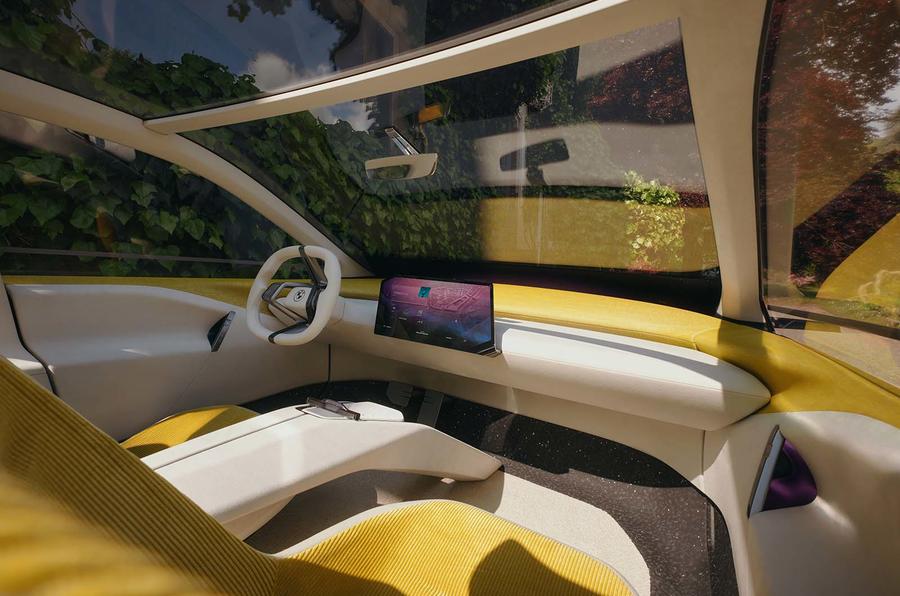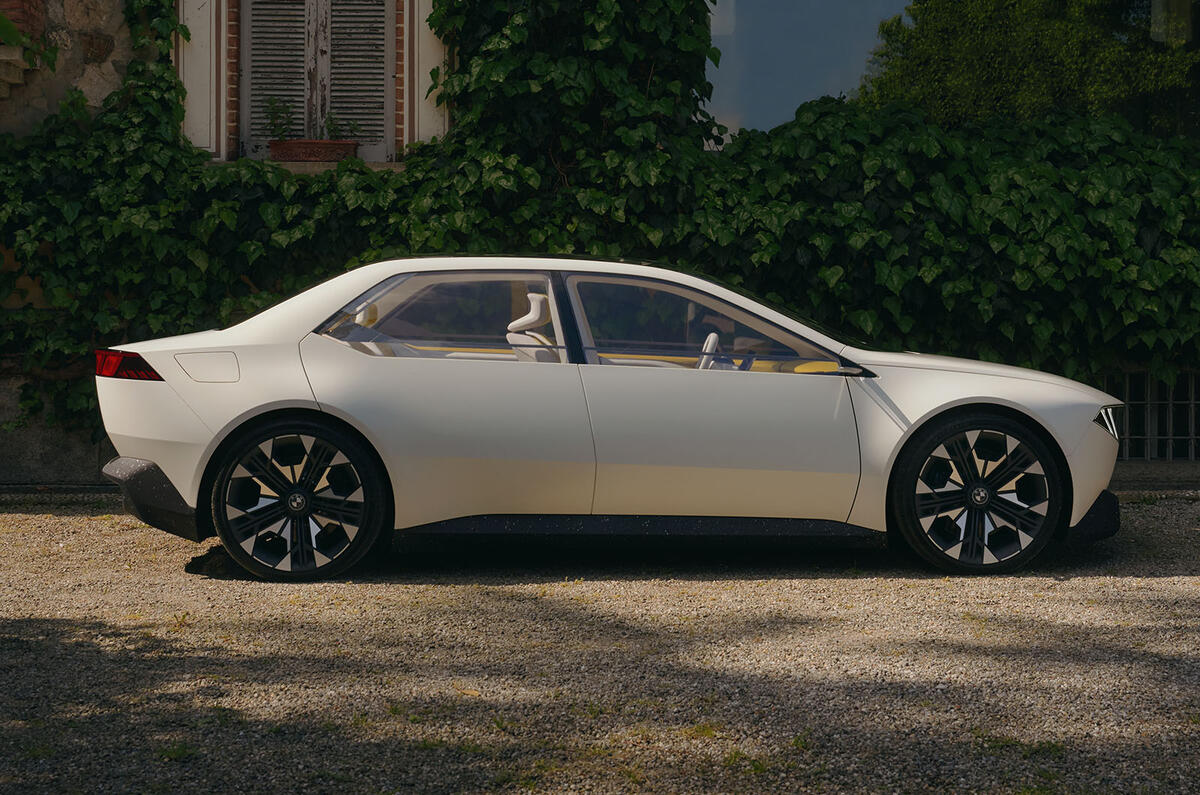BMW is embarking on a strategic journey reminiscent of its historical success with the “Neue Klasse” brand. This time, the iconic German automaker is turning to electric vehicles (EVs) to compete with the pioneering Tesla.
Back in the early 1960s, BMW was a struggling company overshadowed by automotive giants like Volkswagen, Mercedes-Benz, and the Detroit-based manufacturers. To change its fortune, BMW bet everything on a new car known as the “Neue Klasse,” or “new class.”
This gamble paid off when the BMW 1800, launched in 1962 as part of the Neue Klasse lineup, set the company on a path to become “the ultimate driving machine” and one of the most successful brands globally.
Fast forward to the present, BMW is once again at a crossroads, seeking a “Neue Klasse” to steer its strategic direction. The company unveiled a prototype for an electric “Neue Klasse” vehicle at the Munich auto show, roughly the size of its popular 3-series model.

This show car showcases modern features, including panoramic head-up displays projected onto the windshield and traditional BMW design elements, like the distinctive Hofmeister kink in the rear side windows. BMW aims to make this vehicle generation so cutting-edge that it leaps ahead by a generation to stay competitive in the evolving automotive landscape.
BMW Chief Designer Adrian van Hooydonk expressed the company’s determination to adapt to the times and compete with newcomers, stating, “That is necessary because of those new players that are coming in. You know the debate that’s been going on: Oh, traditional OEM (manufacturer) over 100 years old, can you make this step? We can and we want to.”
This “Neue Klasse” marks a multi-billion euro investment by BMW to close the technology gap with Tesla and other EV manufacturers. Despite BMW’s early foray into electric vehicles with the i3 compact in 2013, it failed to capture significant market share, leading to its discontinuation in 2022.
Frank Weber, BMW’s chief technology officer, emphasized the significance of this investment, though exact figures were not disclosed. BMW is committing €2 billion ($2.2 billion) to new battery manufacturing and assembly facilities for the Neue Klasse in Hungary.

When Neue Klasse vehicles start rolling off assembly lines in 2025, it will be 13 years after Tesla revolutionized the EV market with the Model S. Tesla and other EV startups have already adopted key design elements from the Neue Klasse, such as integrating the battery pack into the vehicle’s body structure to reduce weight and assembly costs.
BMW’s new compact EVs will enter a highly competitive segment where Tesla has initiated a price war. BMW has not disclosed pricing details yet, but CEO Oliver Zipse assured that they won’t price themselves out of the market.
Tesla has disrupted the automotive industry by selling directly to customers, offering over-the-air software upgrades, and continuously collecting vehicle data for improvement. Established automakers like BMW are undergoing a multifaceted transformation to adapt to this changing landscape.
The Neue Klasse vehicles will be powered by cylindrical batteries of varying lengths, similar to Tesla’s plans for the Cybertruck and other models. BMW aims for a 50% reduction in battery pack costs and 25% more range per kilowatt-hour to enhance efficiency.
BMW is also revamping its main assembly plant in Munich to produce Neue Klasse vehicles, which will eventually replace current combustion models, including the 3-series sedan and X3 utility vehicles.
However, the technological transformation goes beyond manufacturing. The software systems and battery technology behind Neue Klasse vehicles pose significant challenges for BMW. These EVs will feature four “super brains” to control propulsion, driver assistance systems, infotainment, and other functions. BMW is collaborating with chipmaker Qualcomm to develop the driver assistance system and is handling the propulsion and chassis controllers in-house.

One of BMW’s bold moves is using head-up displays projected on the windshield to counter the large video screens that competitors like Tesla and Mercedes adopted. This decision reflects BMW’s conviction that head-up displays are the best way to present information to drivers.
In conclusion, BMW’s revival of the “Neue Klasse” brand as electric vehicles represents a significant investment and strategic pivot to compete with Tesla and other EV manufacturers. As BMW faces this transformation, it aims to leverage its historical success while embracing the technological advancements required for a rapidly evolving automotive landscape.











